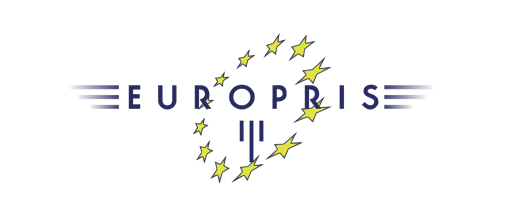 Promoting professional
Promoting professionalPrison Practice.
 Promoting professional
Promoting professional
Lost your Password?
Click Here
Don't have an account?
Register Here
In the table of recommendations and practices below, each Article of the Council of Europe Recommendation 2012 (12) on Foreign Prisoners is included. For each of these Articles, information is collected from European Prison Services giving inspiration to its members and providing practices that support the implementation of the Recommendation. The table also contains references to the practice being a national, local or regional initiative, the legal basis and budget sources.
The table can be searched by country and by Article of the Recommendation.
Countries that are not yet included are invited to submit their data and send them to secretariat@europris.org.
All foreign prisoners can apply for language studies. Swedish Tuition for Immigrants is advanced language instruction aiming to give adult immigrants basic knowledge of the Swedish language. Students with a mother tongue other than Swedish should in the education learn and develop a functioning second language. The education should provide language tools for communication and active participation in daily, societal and working life.
The education also aims at giving adult immigrants who lack basic reading and
writing skills the opportunity of acquiring such skills. A student who is not functionally literate,
or has a writing system that differs from the Latin alphabet, should receive instruction in reading
and writing within the framework of the education.
The education is intended for persons with different experiences, life situations, knowledge and study goals.
The education should be planned and organized together with students and adapted
to their interests, experiences, all-round knowledge and long-term goals.
The education should take as its starting point the needs of the individual, be capable of
combining with employment or other activities such as orientation to working life, validation,
work practice or other forms of education. It must be flexibly designed in terms of time, place,
content and working forms to enable students to take part.
Goal and nature of the education
The goal of Swedish Tuition for Immigrants is that students should develop:
Swedish Tuition for Immigrants aims to provide students with communicative language skills.
This means being able to communicate, both orally and in writing, based on their needs.
Students must acquire knowledge and skills of different kinds to be able to make relevant
language choices in relation to the current communicative situation. Communicative language
skills cover different competences that interact and supplement each other. Communicative
language skills thus presuppose both access to a language system and knowledge of how this
system is used. Knowledge of the language system covers words, phrases, pronunciation and
grammatical structures, whilst knowledge about the use of language deals with how a text is
built up, making choices over functional language, and adaptation in relation to recipient and
purpose. An important competence is also being able to use strategies in the most effective way
to communicate the message.
In Swedish Tuition for Immigrants, students should develop their awareness of the process of
learning a language and insights into their own learning. Students should also develop their
intercultural competence by reflecting over their own cultural experiences, and comparing these
with phenomena in daily, societal and working life in Sweden.
In Swedish Tuition for Immigrants, students should develop their competence in using different
digital tools and aids for information, communication and learning.
All prisoners can also apply for courses
National
Tommy.Nyman@kriminalvarden.se
The main languages used in Estonian prisons are Estonian and Russian. Detainees have the opportunity to learn Estonian.
Datinee Center: 01.07.2015-30.06.2018, is a project called AMIF2015-17 “Counseling and interest in the activities of the detention center.” was carried out. In this project, 6 English and 6 Estonian language courses were organized. Resources and activities are co-financed by the EU Asylum, Migration and Integration Fund and the Ministry of the Interior Ministry.
National
merike.tartu@just.ee
Europe: Belgium Lead Foriner Project;
EU Funded Project to study innovative methods of distance learning for European Prisoners in European prisons, looking especially at IT lead initiatives.
European
EU funded project under Erasmus + Programme Ended January 2018
www.foriner.eu foriner@vovco.be
In the prison library, the collection contains books in foreign languages (narratives but also textbooks). The prisoners can also loan books from the city library, where the collection is wider.
Local Initiative Ypres Prison
Province West-Flanders & city Ypres
Luc Vermeersch (Bib): vermeerschconix@hotmail.com Tine Van Laeken (CF): tine.vanlaeken@derodeantraciet.be
The prison library has books available in both Estonian and in Russian.
National
merike.tartu@just.ee
All prisons and remand prisons have a library with a wide range of literature and it is also possible to order literature in the language that is needed.
National and local
Lars.hakan.nilsson@kriminalvarden.se
West Flanders;
The foreign prisoners are encouraged to learn a language that allows them to communicate. In prison, there is weekly an open learning centre organised by the adult basic education centre (CENTRUM BASISEDUCATIE). They work individual and on tempo of the learner. They learn to read, to write or/and to speak a language. Every month, a group lesson is organised. Since the beginning of 2016, three courses were especially for foreign prisoners to learn ‘Dutch in prison’.
National; CBE
Province West-Flanders, CBE, VOCVO
Liesbeth De Wit (OC): liesbeth.de.wit@vocvo.be